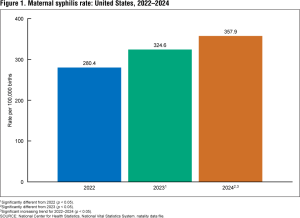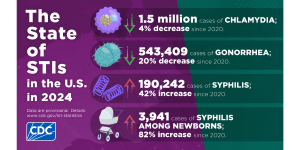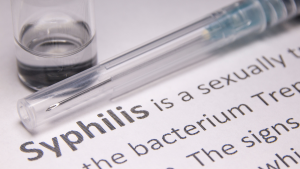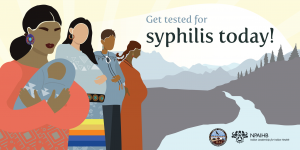
Syphilis Rates in Pregnant Women Continue to Rise
Syphilis rates among pregnant women went up 222% percent between 2016 and 2022 and another 28% between 2022 and 2024. This alarming increase shows too many pregnant women are not being screened.

Congenital syphilis occurs when a pregnant patient with syphilis passed the infection on to their baby. It can cause miscarriage, stillbirth, and even infant death. Babies born with syphilis can face lifelong medical issues. The good news is that syphilis can be prevented with timely testing and treatment during pregnancy. But a new report from the Centers for Disease Control (CDC) shows that we’re missing opportunities to prevent congenital syphilis and save lives.
The report in CDC’s Morbidity and Mortality Weekly Report (MMWR) highlights important gaps in prenatal care and syphilis testing that led to preventable cases of congenital syphilis. Researchers examined congenital syphilis cases in Clark County, the most populous county in Nevada, from 2017-2022. In 2022, Nevada ranked eighth in the United States in rates of reported cases of primary and secondary syphilis and congenital syphilis.
The report notes that from 2017 to 2022, 530 women in Clark County, NV, tested positive for syphilis during pregnancy. More than one-third (195 out of 530) of these women had babies with congenital syphilis. Notably, only 43.1% of these women had access to standard prenatal care during pregnancy.
Lack of prenatal care means many missed opportunities to diagnose and treat infection. Health care providers in Nevada are required by law to screen pregnant patients for syphilis three times—during the first prenatal visit, early in the third trimester of pregnancy, and at the time of delivery. While the policy is in place to prevent congenital syphilis, patients without access to standard care can fall through the cracks.
Despite the lack of prenatal care, many women whose babies had congenital syphilis had other encounters with the healthcare system during their pregnancies. More than half (57.4%) visited the emergency department at least once 30 days before giving birth. Yet only 68.4% of these visits included syphilis testing. Recent research has shown that testing pregnant patients for syphilis in emergency departments can help catch cases of syphilis that may otherwise go undetected.
These findings clearly highlight the need to improve access to prenatal care to ensure timely syphilis testing and treatment. The report also suggests expanding syphilis screening of pregnant patients to nontraditional care settings, such as emergency departments. Connecting patients who test positive to timely care is also essential, regardless of the setting.
This is evident from the report from Clark County and from what researchers see nationwide. CDC estimates that timely testing and treatment during pregnancy might have prevented 88% of the cases of congenital syphilis in 2022.

Syphilis rates among pregnant women went up 222% percent between 2016 and 2022 and another 28% between 2022 and 2024. This alarming increase shows too many pregnant women are not being screened.

The CDC just released STI Surveillance Data for 2024 that show cases of chlamydia, gonorrhea, and syphilis are slowly declining.

A new study found that a single shot of benzathine penicillin G (BPG) treated early syphilis as well as the standard three-injection regimen.

An antibiotic that is important in the fight against syphilis will once again be hard to find, this time because of a voluntary recall by the manufacturer.

Many people who take doxy PEP say it gives them peace of mind in their relationships and sex life. We sat down with Oscar Alexis, Efthimios, and Maxfield Haynes to talk about doxy PEP and get their perspective.

A new study found that opt-out screenings for all patients in emergency departments caught numerous cases of syphilis and HIV that would have gone undetected under other screening protocols.

Two studies published in this month’s JAMA Internal Medicine offer encouraging findings about the use of Doxy PEP.

According to the Great Plains Tribal Epidemiology Center, syphilis rates among Native Americans in Iowa, Nebraska, North Dakota, and South rose 1,865% from 2020 to 2022.
ASHA believes that all people have the right to the information and services that will help them to have optimum sexual health. We envision a time when stigma is no longer associated with sexual health and our nation is united in its belief that sexuality is a normal, healthy, and positive aspect of human life.
ABOUT
GET INVOLVED
ASHA WEBSITES
GET HELP
© 2026 American Sexual Health Association